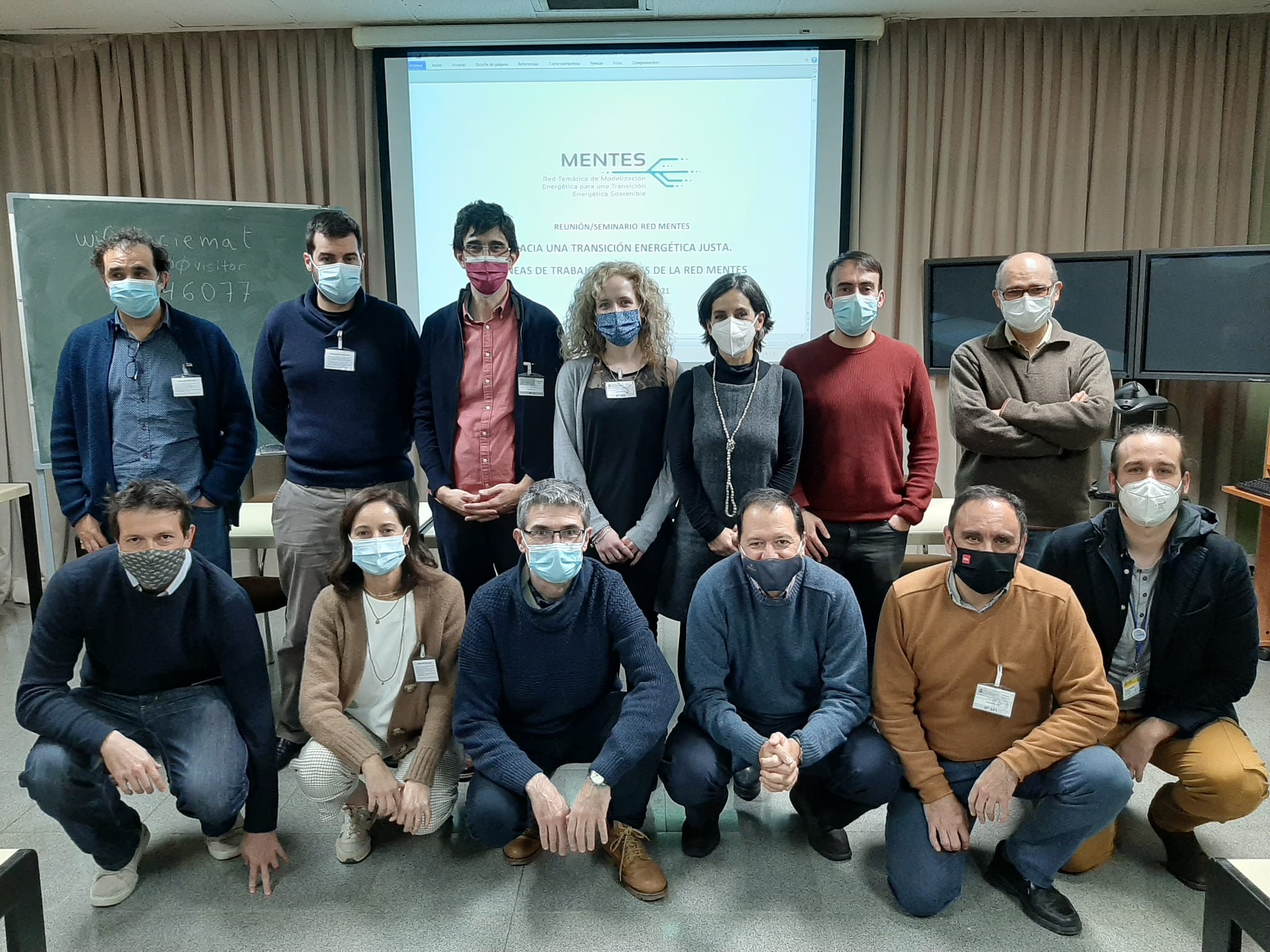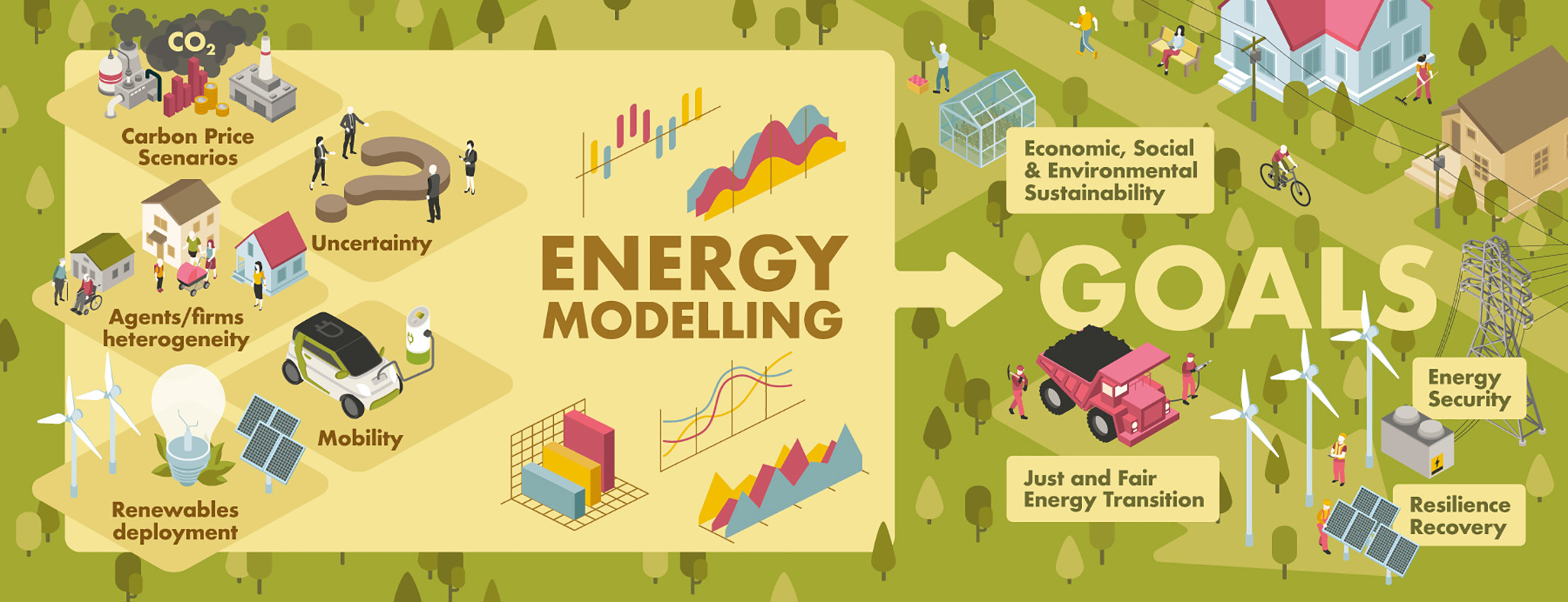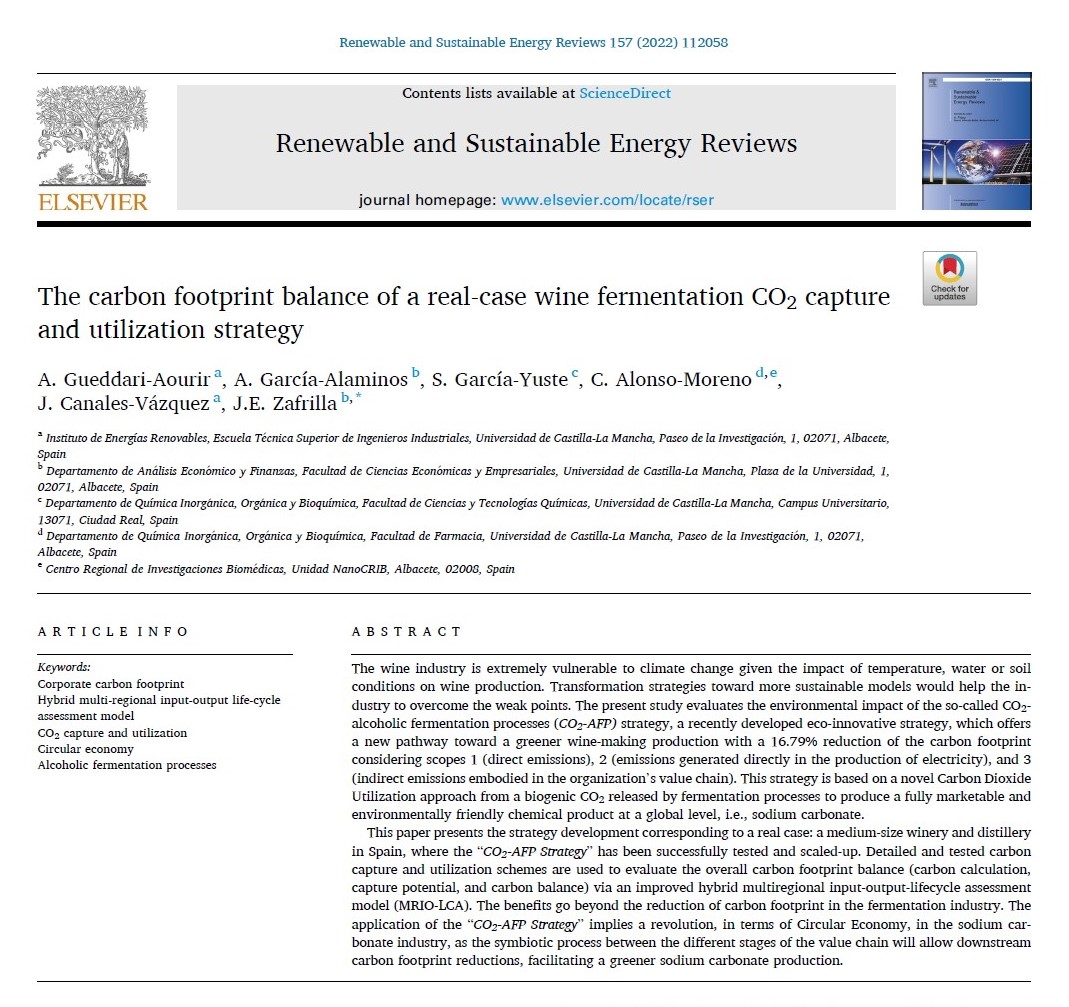On November 24, 2021, at the CIEMAT-Madrid headquarters, we enjoy the network’s seminar entitled “TOWARDS A FAIR ENERGY TRANSITION. RECENT LINES OF WORK OF THE MENTES NETWORK”. All the members of the Network were able to share our latest work.
We show you the program of presentations as well as some photos:
PROGRAMA REUNIÓN/SEMINARIO RED MENTES
HACIA UNA TRANSICIÓN ENERGÉTICA JUSTA.
LÍNEAS DE TRABAJO RECIENTES DE LA RED MENTES
24 de noviembre de 2021; CIEMAT, Madrid
MAÑANA:
9.30 – 10.00: Bienvenida y recogida documentación.
10.00 – 10.30: Presentación Grupo 1. IIT – Comillas: “Programación robusta en energía”, Pedro Linares y Antonio Francisco Rodríguez Matas.
10.30 -11.00: Presentación Grupo 2. IMDEA-Energía: “Modelización energética en la Unidad de Análisis de Sistemas de IMDEA Energía”, Diego Iribarren.
11.00 -11.30: Presentación Grupo 3. BC3: “Líneas de investigación y proyectos en curso”, Iñaki Arto.
11.30 -12.00: Descanso – café.
12.00 -12.30: CIEMAT: “the importance of CSP cooperation projects in Europe to deal with sustainability for the energy transitions”, Santacruz Banacloche y Yolanda Lechón.
12.30 -13.00: Presentación Grupo 5. INARBE – UPNA. «Eficiencia energética y efectos rebote», Pablo Arocena y Antonio Gómez-Plana
13.00 -13.30: Presentación Grupo 4. GEEDS – Uva: “Líneas de investigación y proyectos en curso”, Luis Javier Miguel y Luis Llases González.
13.30 – 15.30: Descanso – Comida.
TARDE:
15.30 – 16.00: Presentación Grupo 7. GEAR – UCLM: “La extensión de la sentencia Shell a todas las multinacionales a nivel mundial”, Luis López, Mª Ángeles Cadarso y Mª Ángeles Tobarra.
16.00 – 16.30: Presentación Grupo 8. Tecnalia: “Plataforma de planificación-proyecto Bideratu”, Diego García Gusano.
16.30 – 17.00: Descanso – café.
17.00 – 17.30: Presentación Grupo 9. Presentación grupo 6. CREDENAT – Unizar: “Líneas de investigación y proyectos en curso”. Ignacio Cazcarro y Raquel Langarita.
17.30 – 17.45: Discusión de temas de la Red (agradecimientos artículo, Jornada de modelización, próxima reunión y curso de verano).
17.45 – 18.00: Conclusiones y cierre.




